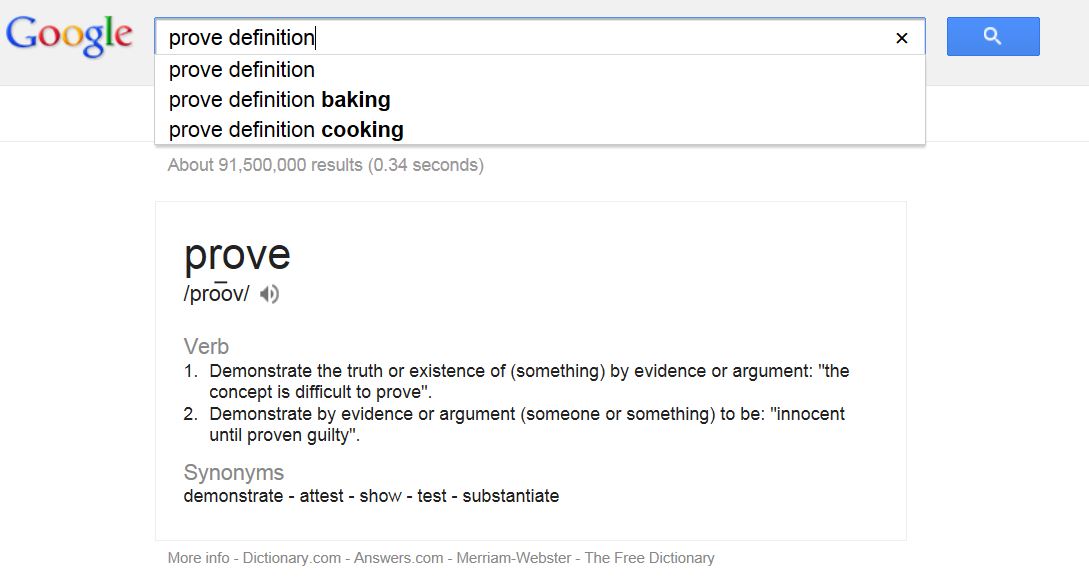To prove something means to demonstrate that somethinge exists by evidence or argument.
Then what is an argument or evidence? Evidence is something you can give only through the senses, e.g. like when you drive up in your new red Mini Cooper you prove to someone that you have new car. But how exactly can you do that with God? Is it possible?...I think so, but only through an argument.
Since the time of Socrates an argument had three parts and three terms. Aristotle wrote his six-part work on Logic called the Organon (wiki article) which since then was considered the basic textbook for Logic until the Industrial Revolution, which while forging a new kind of Logic (Mathematical Logic), nonetheless continued using the same basic principles as those of the Organon.
To prove something through an argument you need a syllogism. A syllogism only occurs when there are three notions: a concept, a judgment, and through them a reasoning, in other words an argument.
CONCEPT (example: 'All Humans'): To prove a real syllogism you require real concepts but concepts can be validly employed in fiction as well, but the problem is that you're not proving anything...BTW - You need three concepts per syllogism. A sure sign of a bad syllogism is when you have less than or more than three concepts.
ALL HUMANS
JUDGEMENT (example: "All Humans are Mortal"): It's necessary to put concepts together, and if you want to make it work in reality you need to make sure it's true, and in this case (example) it is. Here below are two judgements.
ALL HUMANS ARE MORTAL
ALL GREEKS ARE HUMAN
REASONING: After stringing together two true judgements we are ready to create
an argument (argument=reasoning)...
ALL HUMANS ARE MORTAL
ALL GREEKS ARE HUMAN
therefore, it follows that:
ALL GREEKS ARE MORTAL
To be Continued...Part 2 of 5 on Analogy

No comments:
Post a Comment